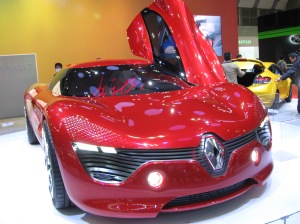Why isn’t there “enough” stuff? Why can’t we be satisfied with what we have, why do we always have to have more and always have the need to buy better stuff? Why do we fill our lives with expensive status object? Why do we work in a job we hate to buy things with money we don’t have to please people we don’t like?
The answer may be simple: love
Yann Dall’Aglio is a French philosopher and in his ted talk he talks about modern love. Now what has this all to do with minimalism you might ask. Quite a lot I found out. So let me sum up what he said quickly:
- It all depends on how you define love. If you define love as the desire of being desired, you have the instant problem of how to make other people desire you. And how to keep them that way, desiring you eternally. So how can you tell whether you are desired or not?
- Before, the individual was able to tell by referring to the community they were part of. They had their certain role, a status in a community according to their sex and their age, so all they had to do was show up, be there and be desired.
- Through modernity, everything has changed. Now, the individual can freely value or devalue however they like and whatever they like. You can choose if you want to value somebody or not. But of course, if you can choose, everybody can choose to value or devalue somebody/something.
- What was a set thing before is now free and up to other things. So the modern man gets obsessed: Am I desirable? How much am I desirable? And what does he do then in order to make sure to be desirable? “By hysterically accumulating the symbols of desirability”. Yann Dall’Aglio calls this accumulation “The Seduction Capital”. Seduction Capital can look like this:

- But Seduction Capital can also have all kinds of other forms, he mentions a teenager buying brand new jeans and tearing them at the knees because he wants to please a girl.
In his talk, Yann Dall’Aglio continues to talk about different scenarios, how this accumulation of Seduction Capital can look like in the future, but I would like to talk about the minimalist scenario here. So now that we know that, what can we do about it. What can a minimalist do with this kind of information and understanding of human nature in mind?
I am sorry if the answer is obvious, but the solution that I would propose is: Love yourself unconditionally. This implies two things
a) If everybody can choose to love you or not, instead of making them love you, why not love yourself? If all you need is love, why not give it to yourself instead of expecting it from others? It becomes your job to love yourself, not somebody elses.
“Love Yourself.” The solution may sound simple, but it’s actually not. There might be a million guides to how to love oneself, but I find it rather difficult at times, if not impossible to do that so easily. It means that you break up all the mechanisms of love that we are used to – there is a subject that loves and an object that is loved – and put yourself in charge. You have to destroy the object, the passive “being loved” part and get active in the act of loving.
b) Unconditionally. There are no conditions to love, You always love yourself, no matter what happened, no matter the circumstances. This may be hard for you (I know it is for me), because most of the people beat themselves up if they make a mistake. Theoretically they know that it is human to err, but when it comes to themselves, loving yourself is something that can only be done when you are perfect. But since nobody ever is perfect, it is up to you to forgive yourself and love yourself again.
If you can achieve this, then automatically accumulating Seduction Capital should not be a priority anymore. Why would you have to do it if you already have what you need? And if you can give it to yourself instead of relying on others to give it to you all the time, isn’t this what true freedom is about?
When you differentiate between the things that are Seduction Capital and the things that add value to your life in a different way, as they are not about making you more desirable but are about something else, isn’t is this what we mean when we talk about minimalism? Deciding what adds value to our lives and then getting rid of all of the stuff that doesn’t? All the “downgraders” and all the “minimalists” outside in the world, aren’t they talking about this? Not relying on things that scream “love me”, like this 1000 dollar watch and that brand bag and the shiny new car, but being seriously interested in a different kind of relationship with other human beings, isn’t this what minimalism is about? Isn’t this why minimalists are getting rid of all the “superfluous” things in their life and “reduce” it to what they think is necessary in order to live a “better life”?
How do you think?